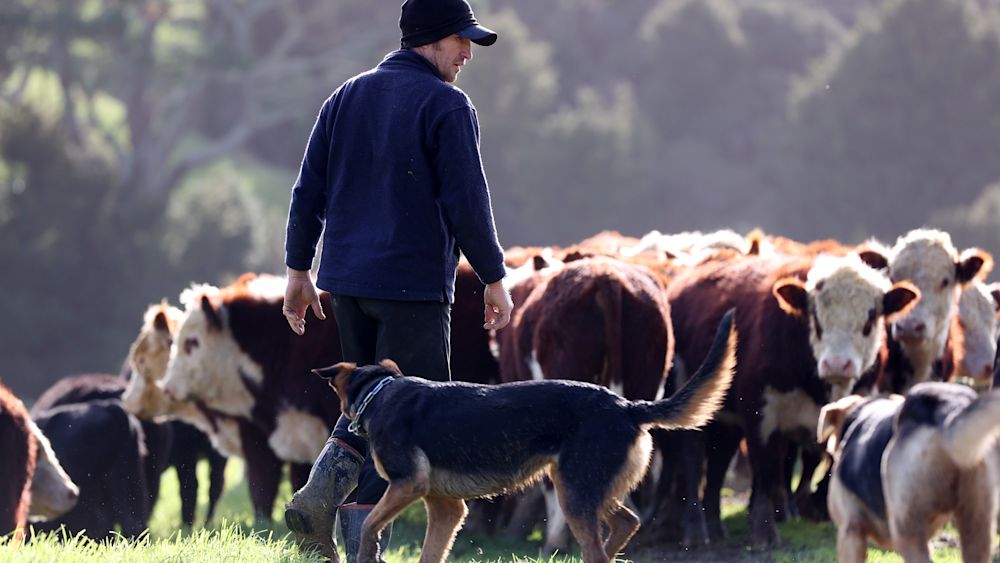- Iterate
- Meet The Team
- Cutting Down on Carbon: Could Agtech Change the Fate of New Zealand Farming?
Cutting Down on Carbon: Could Agtech Change the Fate of New Zealand Farming?
Table of contents
As New Zealand turns a corner from high-emission intensive farming practices to a cleaner smarter future, The Org spoke with Hot Lime Labs, an enterprising startup hoping to plow the future of New Zealand’s agriculture movement.

As an agrarian nation where sheep outnumber humans, New Zealand has long celebrated farming as the nation’s economic backbone, with meat and dairy products long serving as the country's highest export earner.
However, similar to the U.S, agriculture has become the subject of environmental calamity within the nation, with cows on local dairy farms emitting 17,719 kilotons of carbon dioxide in 2019, the highest amount of greenhouse gas emissions recorded on local dairy farms.
The figures run parallel with the government's mission to become emissions-free, with plans to cut all greenhouse gasses except for biogenic methane to net zero by 2050. To do so, it’s committed NZD $380 million of the $29 billion in its recent climate funding announcement to incentivize New Zealand’s tech industry to find new ways to lessen the carbon hoofprint in agriculture.
It opens the gate for New Zealand’s burgeoning agtech sector to innovate new solutions and become a key economic export, with the top 22 agritech companies already generating $1.4 billion in annual revenue.
As New Zealand turns a corner from high-emission intensive farming practices to a cleaner smarter future, The Org spoke with Hot Lime Labs, an enterprising startup hoping to plow the future of New Zealand’s agriculture movement.
Feeding a growing population with Hot Lime Labs
Carbon killers, Hot Lime Labs, provides food producers with the ability to shift away from fossil fuels to a renewable source of CO2. Its solution captures CO2 by converting wood waste biomass into clean CO2 for commercial greenhouses, while increasing crop productivity and growth.
Its overall mission is to help transition 50 percent of the global greenhouse industry to renewable energy within the space of 30 years, Chief Growth Officer Tijs Robinson told The Org.
“Plants spend their lives absorbing this CO2, and the waste after harvesting would typically end up rotting, re-releasing CO2 back into the atmosphere. This makes our CO2 renewable and carbon-neutral and avoids the use of fossil-based CO2,” Robinson said. “We burn the waste in a special way and pass this through a container of our patented modified limestone pellets running at 800C, thus the name ‘hot lime’. This is the really smart part of our systems, and it acts like a sponge and just grabs CO2 from the wood gasses.”
The startup is putting “the green back into green houses,” enabling food producers with a carbon friendly solution to high intensive agriculture, as the industry grapples with the task of feeding more than 10 billion people by 2050.
Although Hot Lime Labs is still developing its technology — with plans to capture all carbon waste in greenhouses — the company has already scaled up massively.
“To date, we have scaled up the technology 20,000 times, from lab to a successful pilot Unit. Our first commercial system is pre-sold and set to be installed at a greenhouse by the end of the year. We are currently in the final stages of the unit build, then we move on to testing it before shipping to the customer,” Robinson said.
How agritech leads to better business
Hot Lime Labs was originally used on tomato crops, but is adaptable to any greenhouse of any size, with the capability of growing thousands of tons of fruit and vegetables a year in a high-tech growing environment.
It’s not just an environmental solution to traditional greenhouse farming operations; it’s also better business, with the global food market set to be worth $3 trillion. “In New Zealand the future of natural gas is unclear and pricing has skyrocketed. In Europe it's even more dire with the Ukraine war. Burning natural gas just isn’t good business anymore, and greenhouses are desperate for an alternative.,” Robinson said.
Hot Lime Labs has already raised a “few million,” Robinson told The Org without sharing further details, and the company is set to announce its first Series A investment round at the end of year. It’s also garnered the support of national innovation groups such as Callaghan and Kiwinet.
Robinson said, “We are already in discussions with international partners to serve very large offshore markets. We see New Zealand as where innovation and product development occurs - plus New Zealand and Australia have their fair share of customers also.”
Although the company is born and bred in New Zealand, Hot Lime Labs has its sights on global expansion.
“In the next decade, we will have hundreds of systems installed globally — and each system will be using renewable waste biomass and allowing growers to massively reduce their fossil fuel use,” Robinson said.
Hot Lime Labs is just one New Zealand company helping the government on its ambitious mission to a carbon free future, but many others are waiting to get their hands dirty to transform how we travel, eat and live.
These include, but are not limited to: Animal-free dairy startup Daisy Labs, the investment and accelerator on a mission to save the planet, Sprout; and the “FitBit for cows” improving pasture management and animal health, ProTag.
Sign up now: Stay up to date, level up and hire better with our behind the scenes newsletters at the world’s top startups.


The ORG helps
you hire great
candidates
Free to use – try today